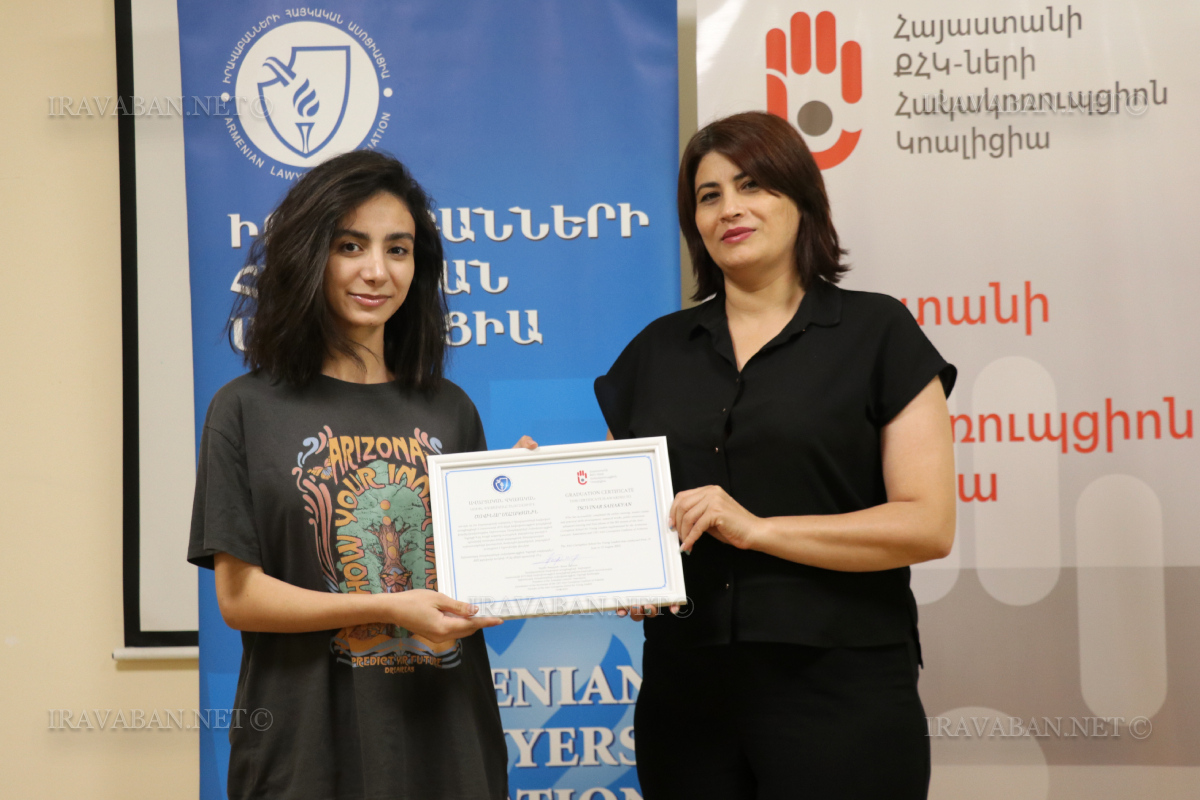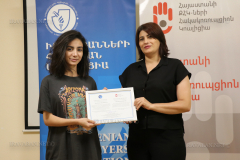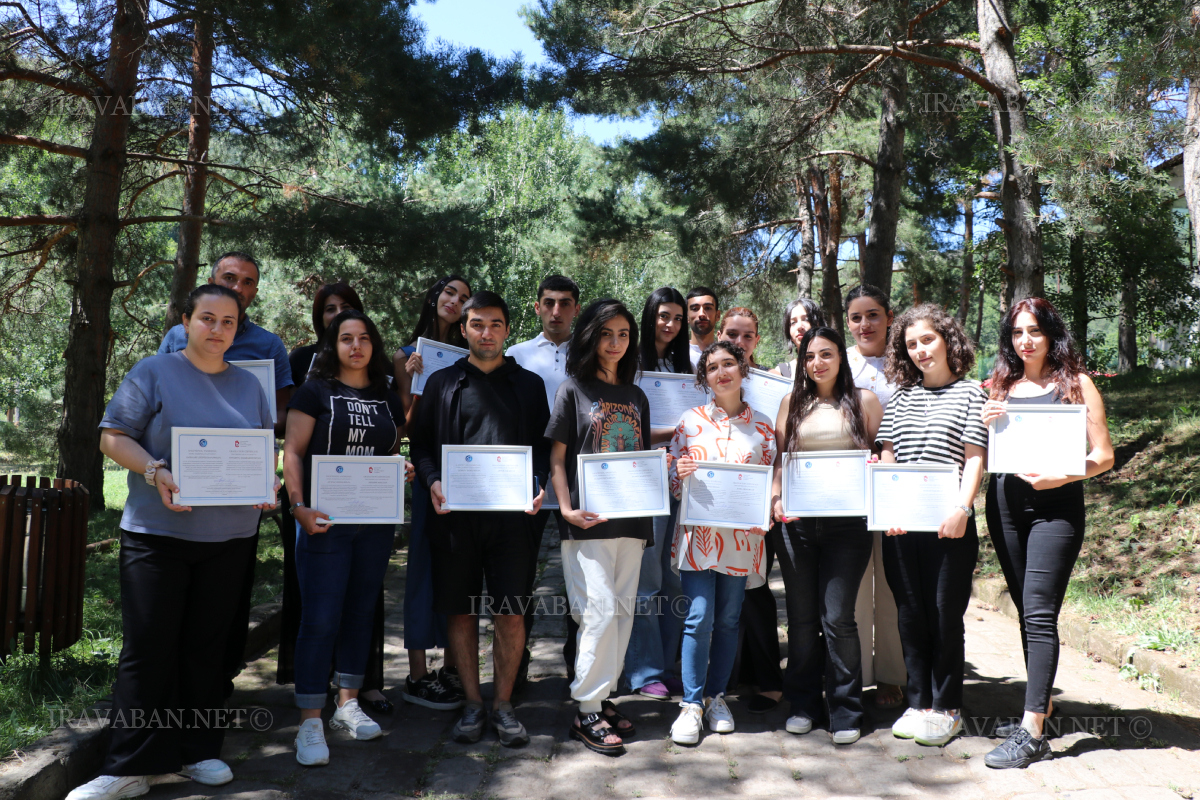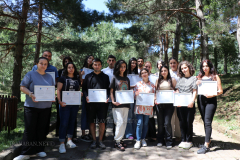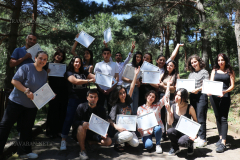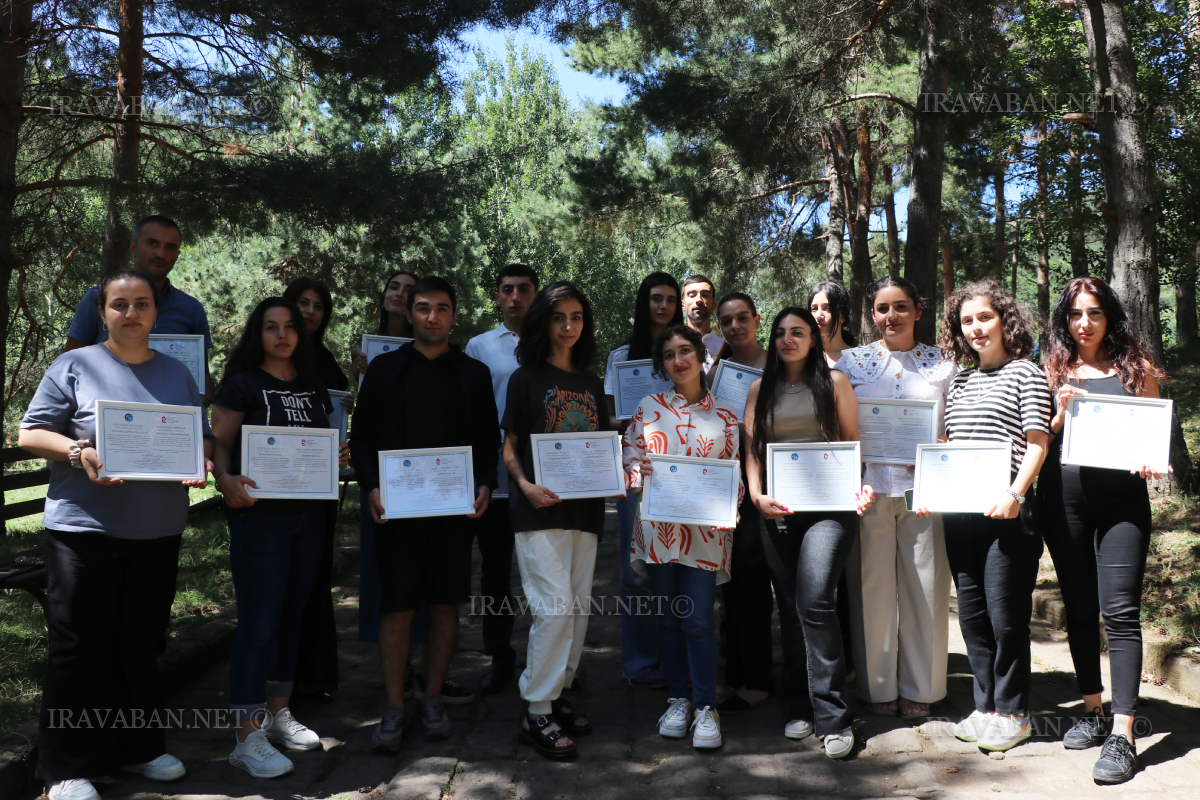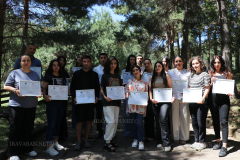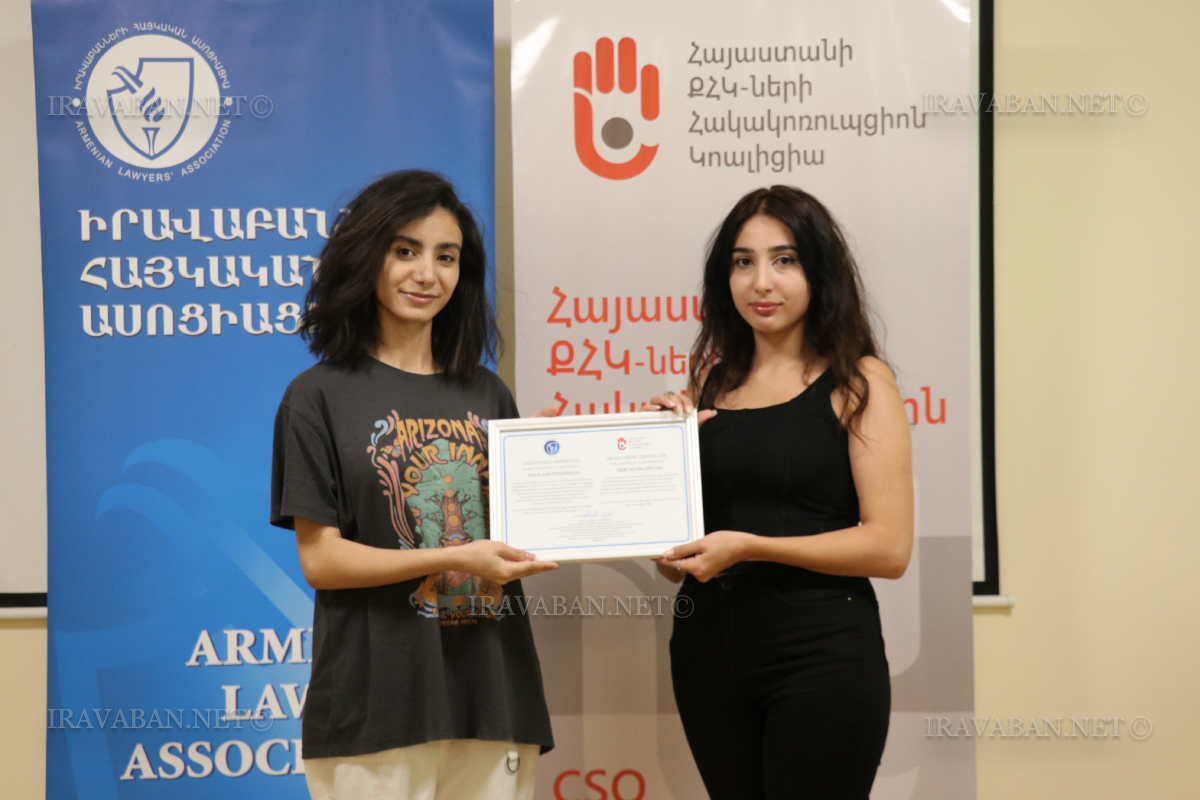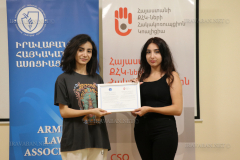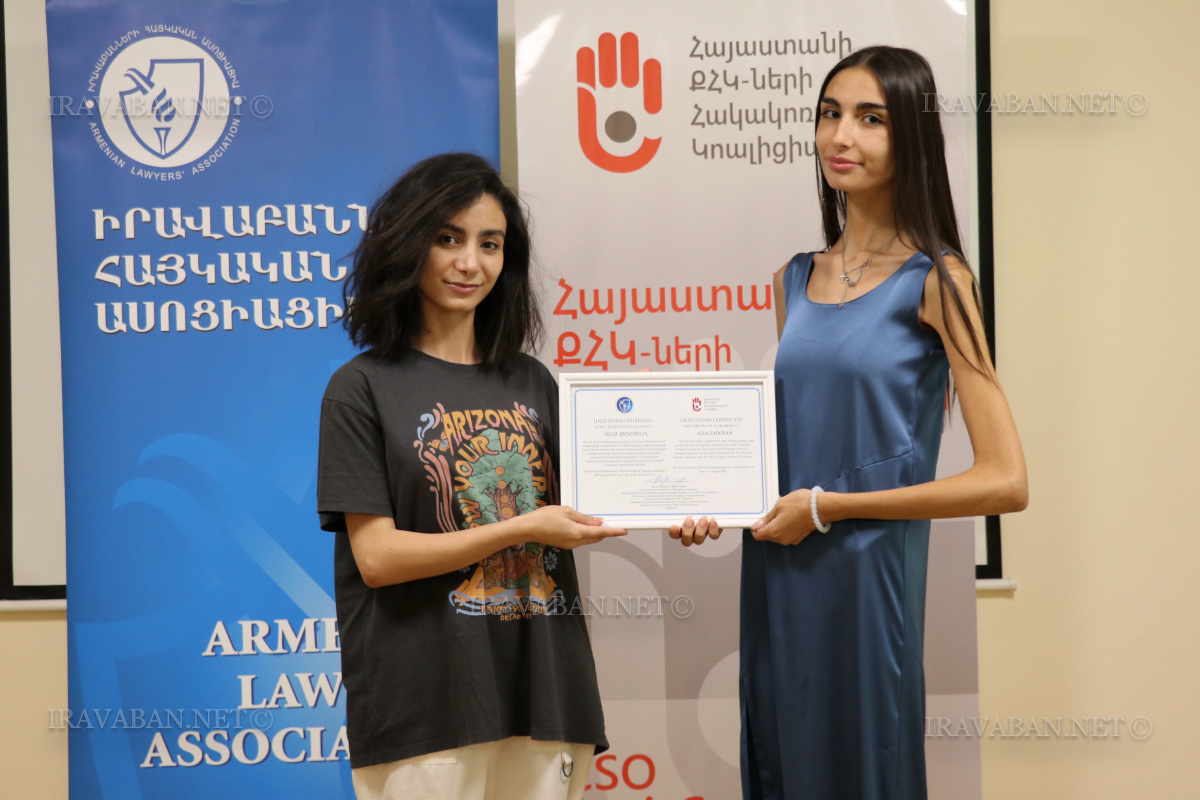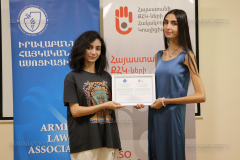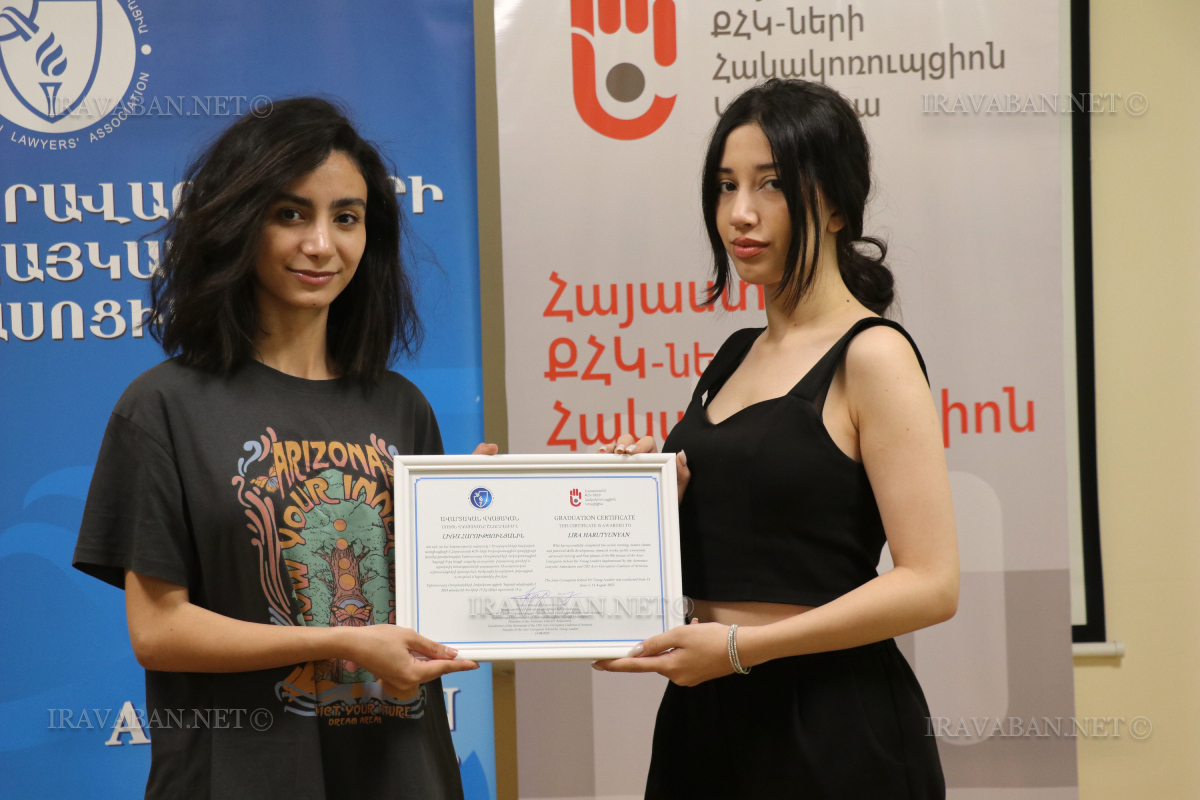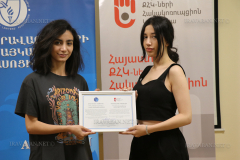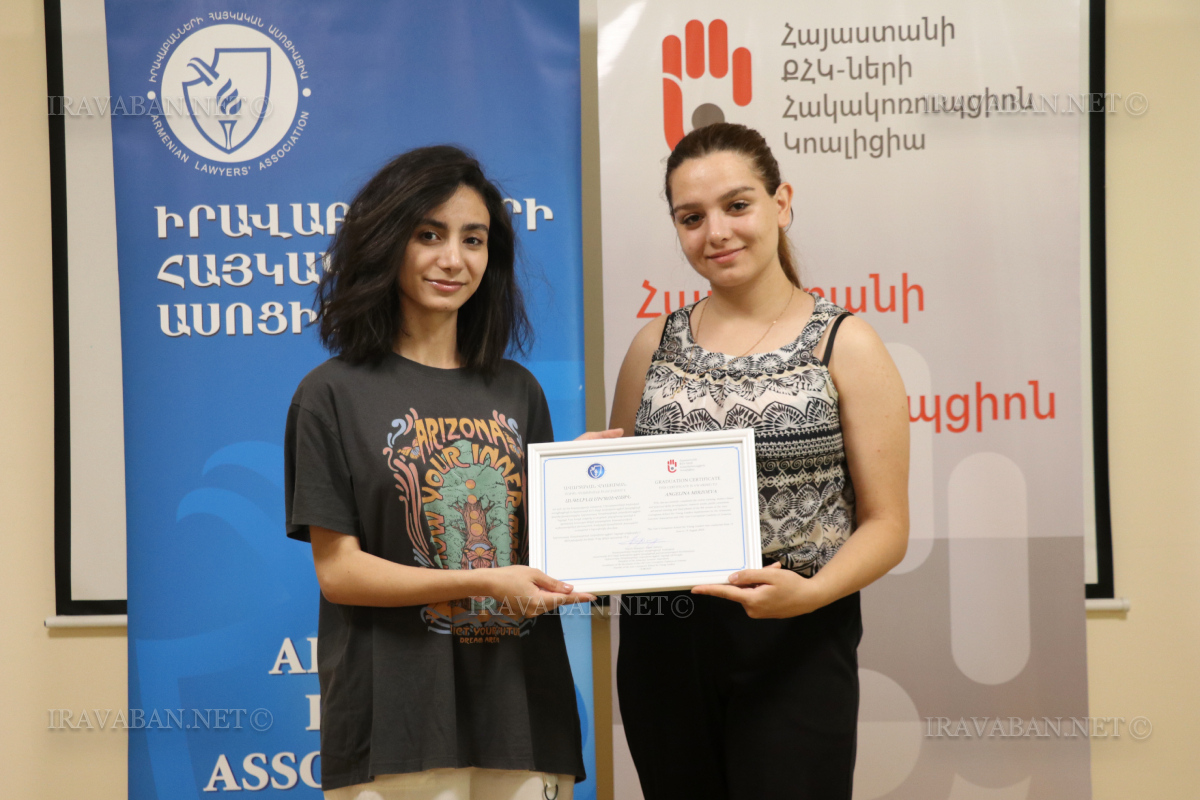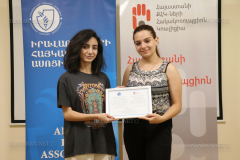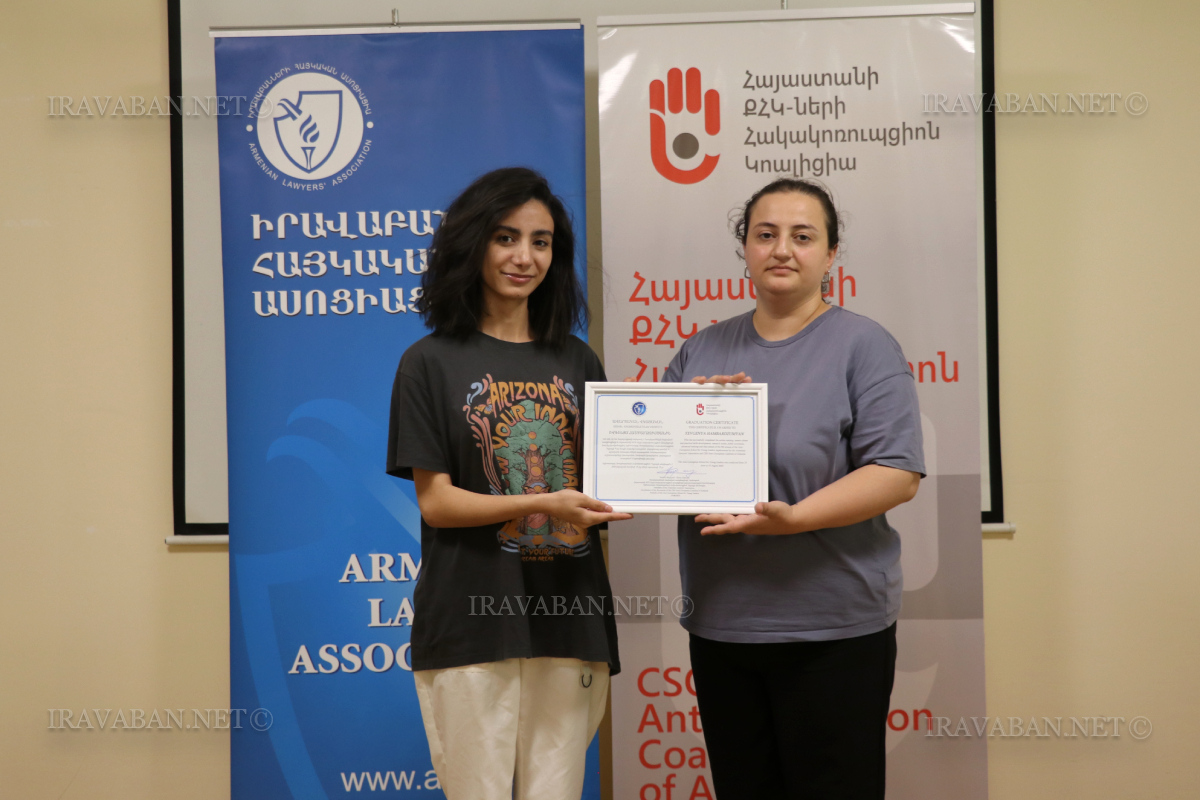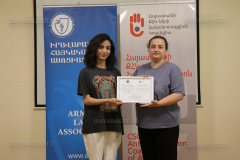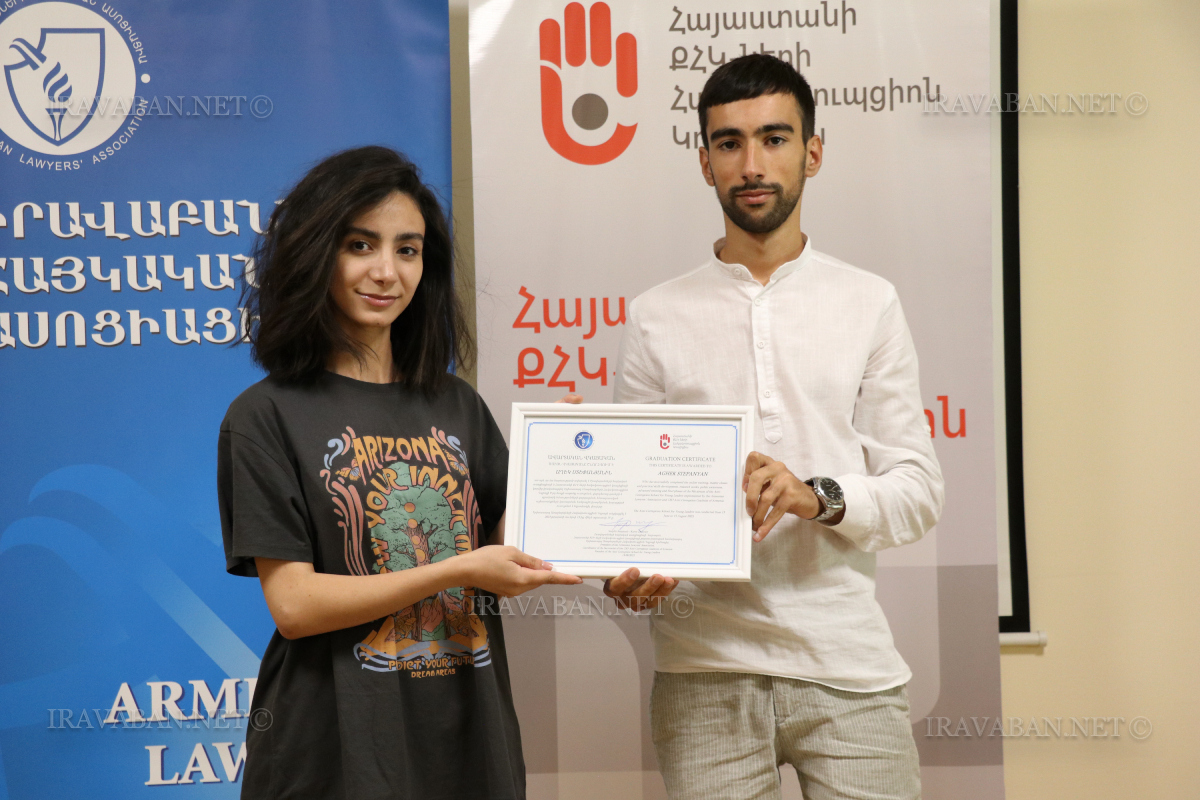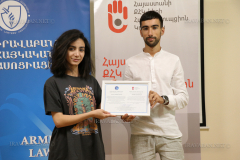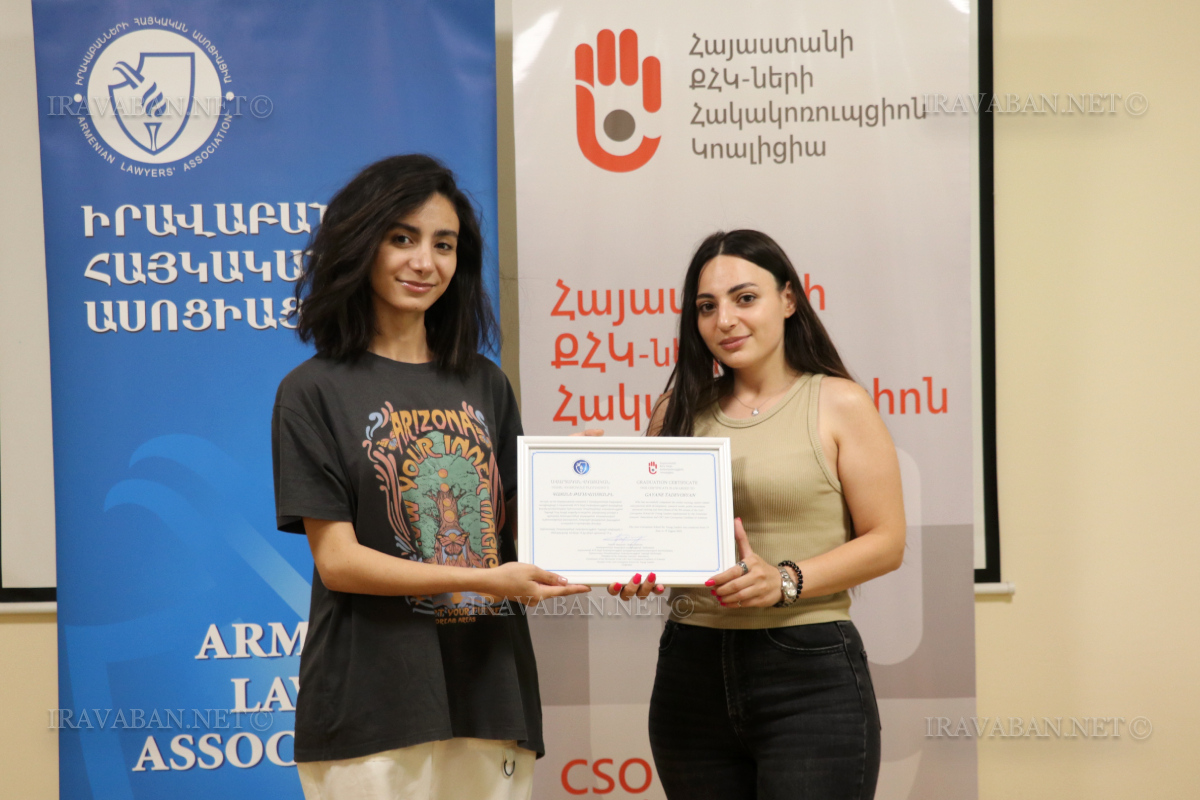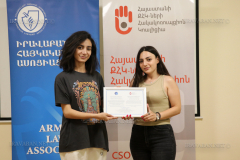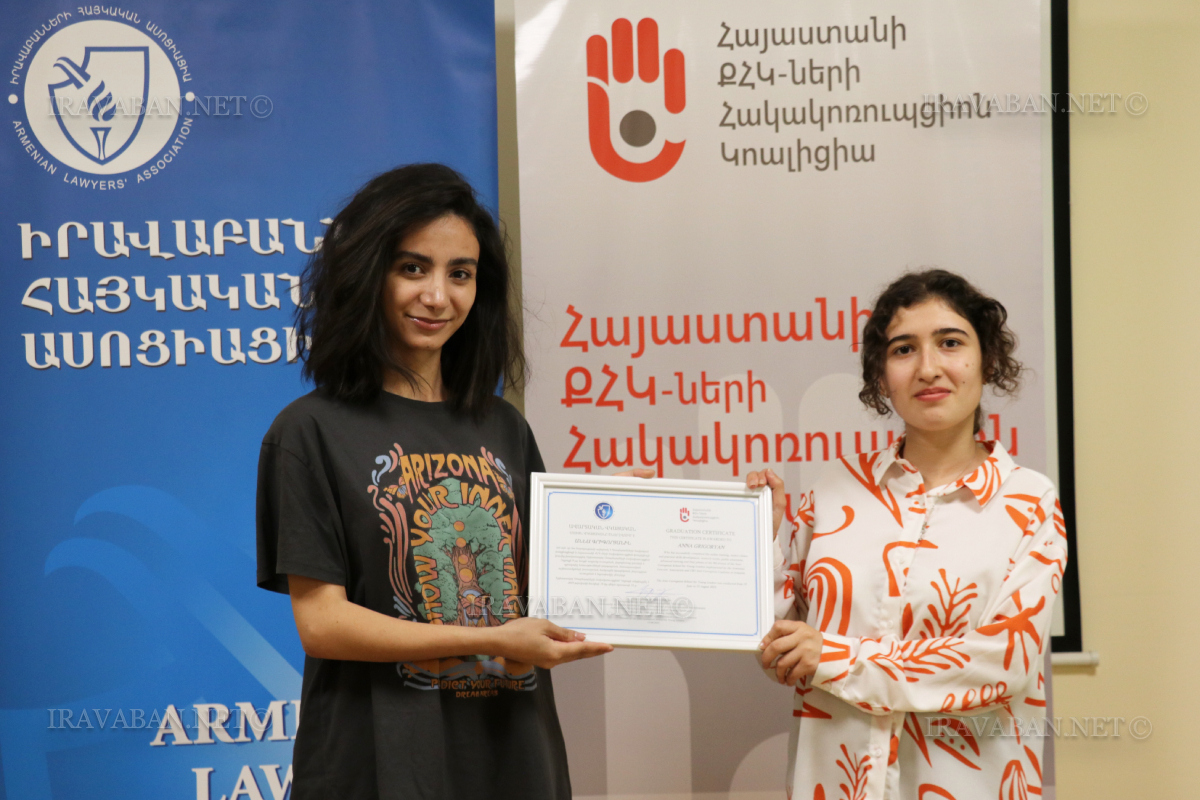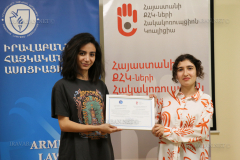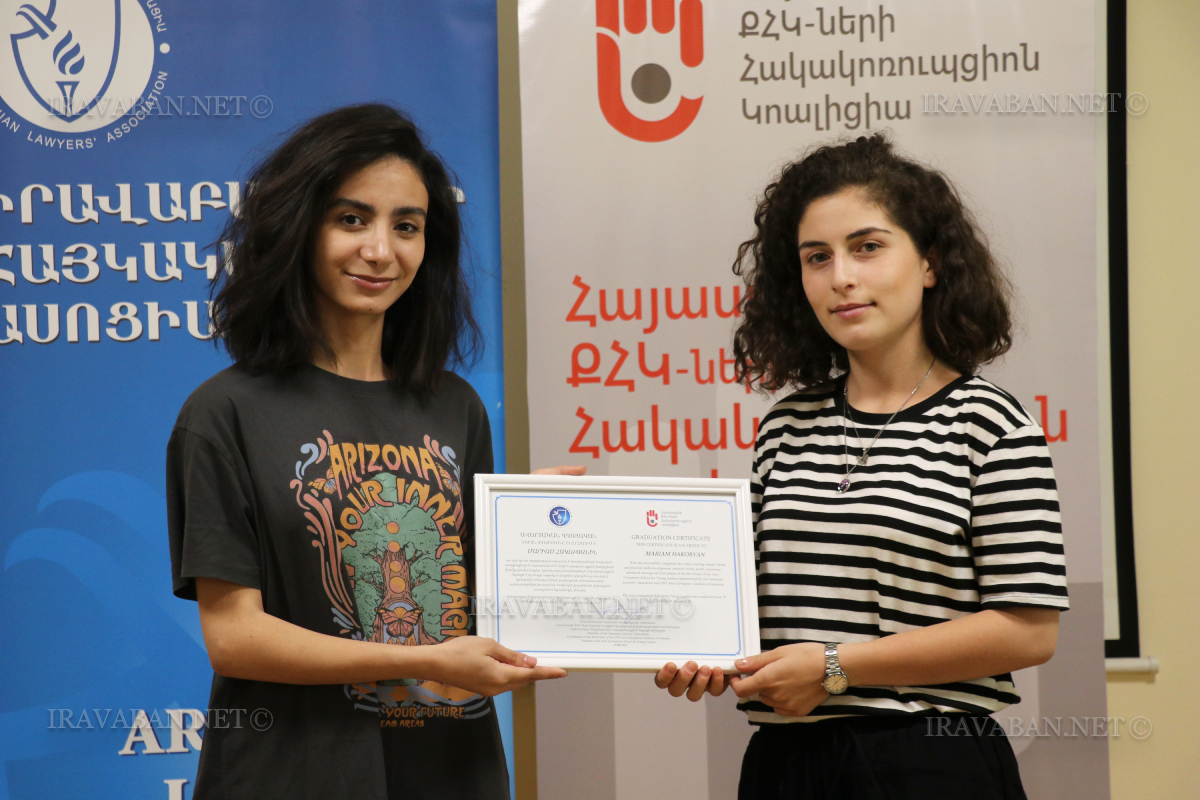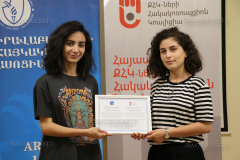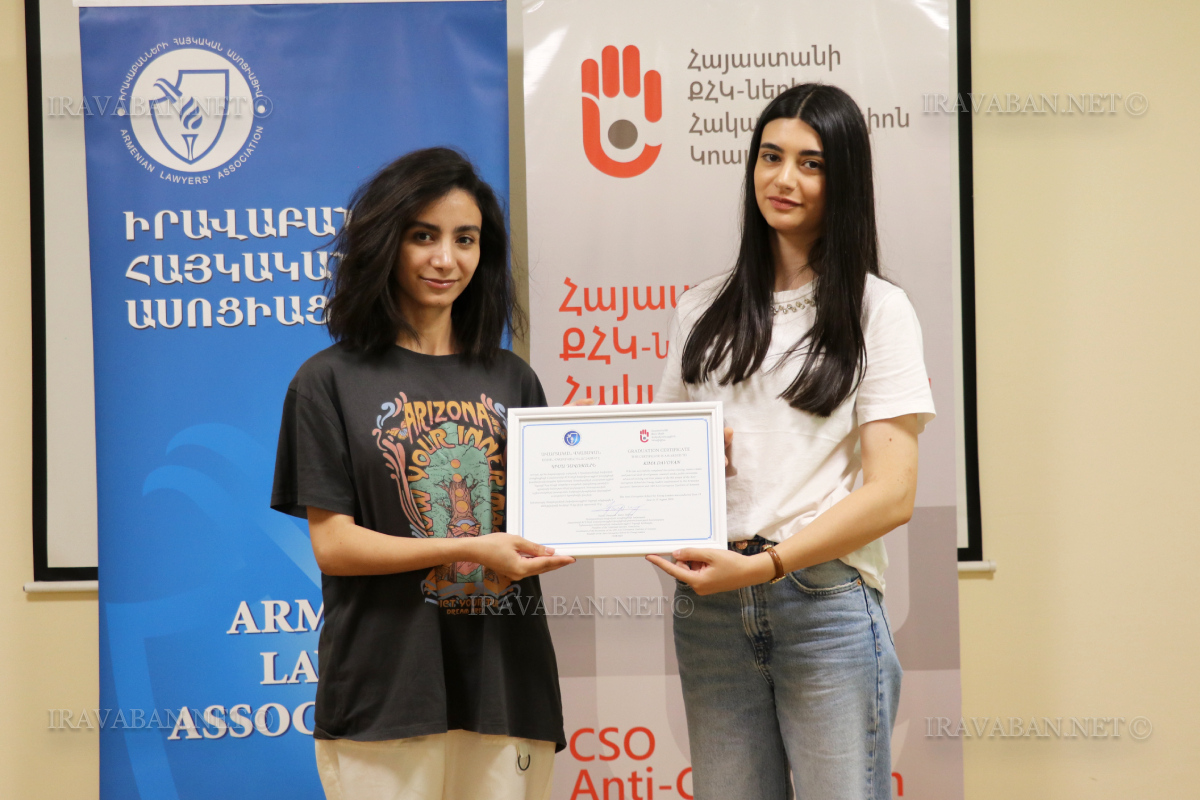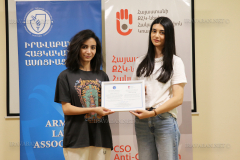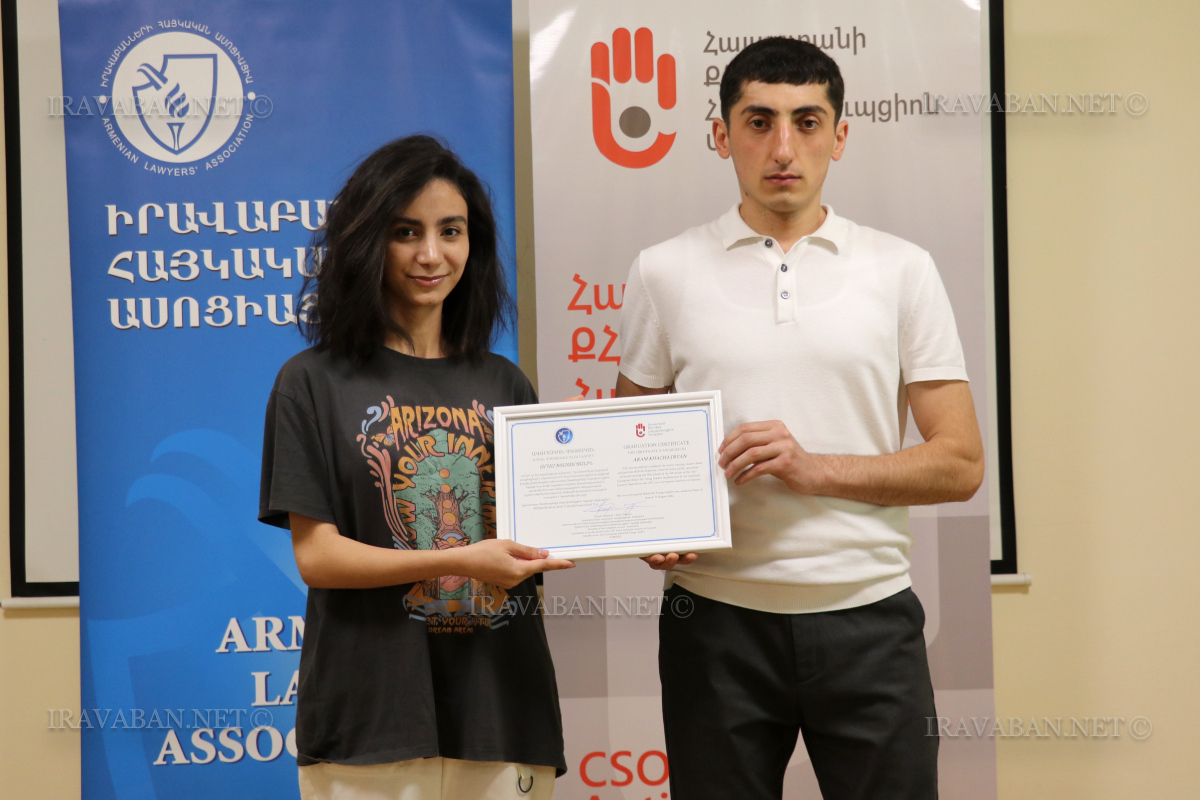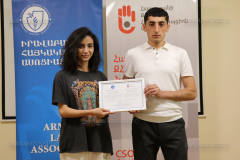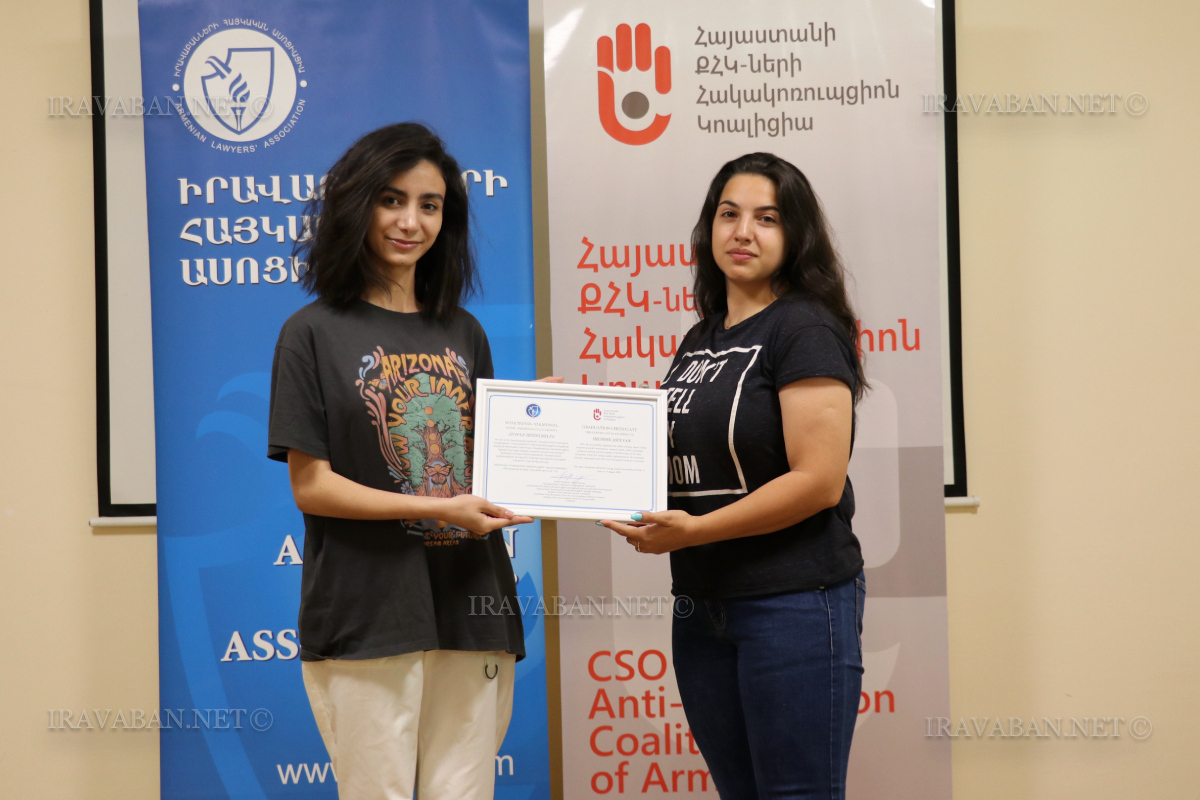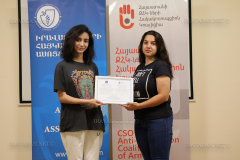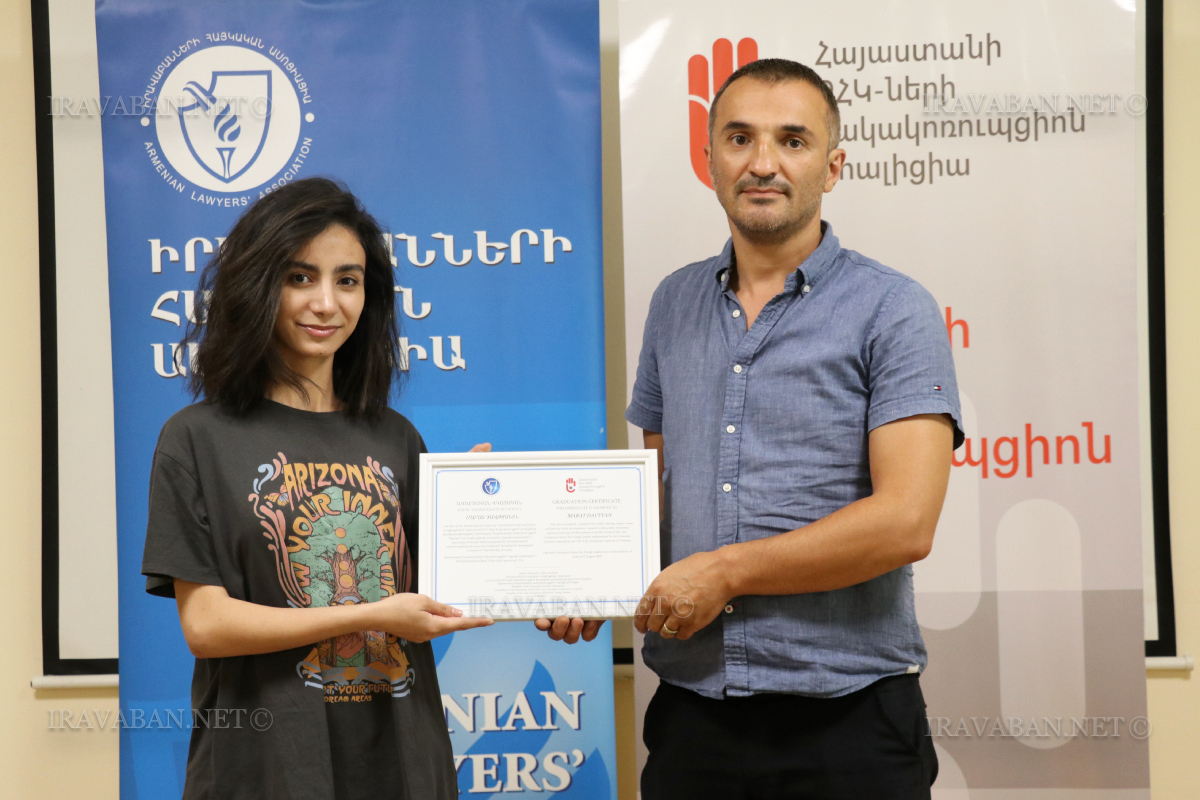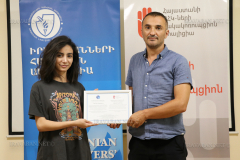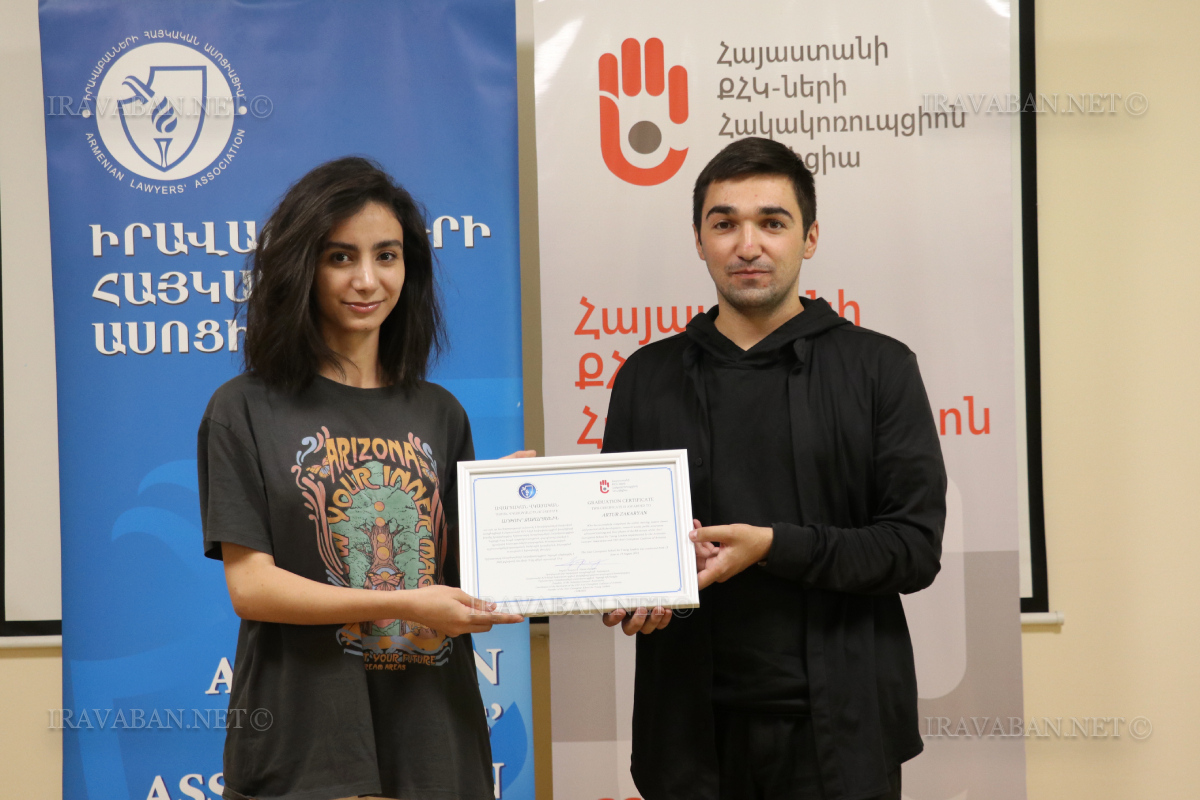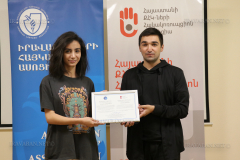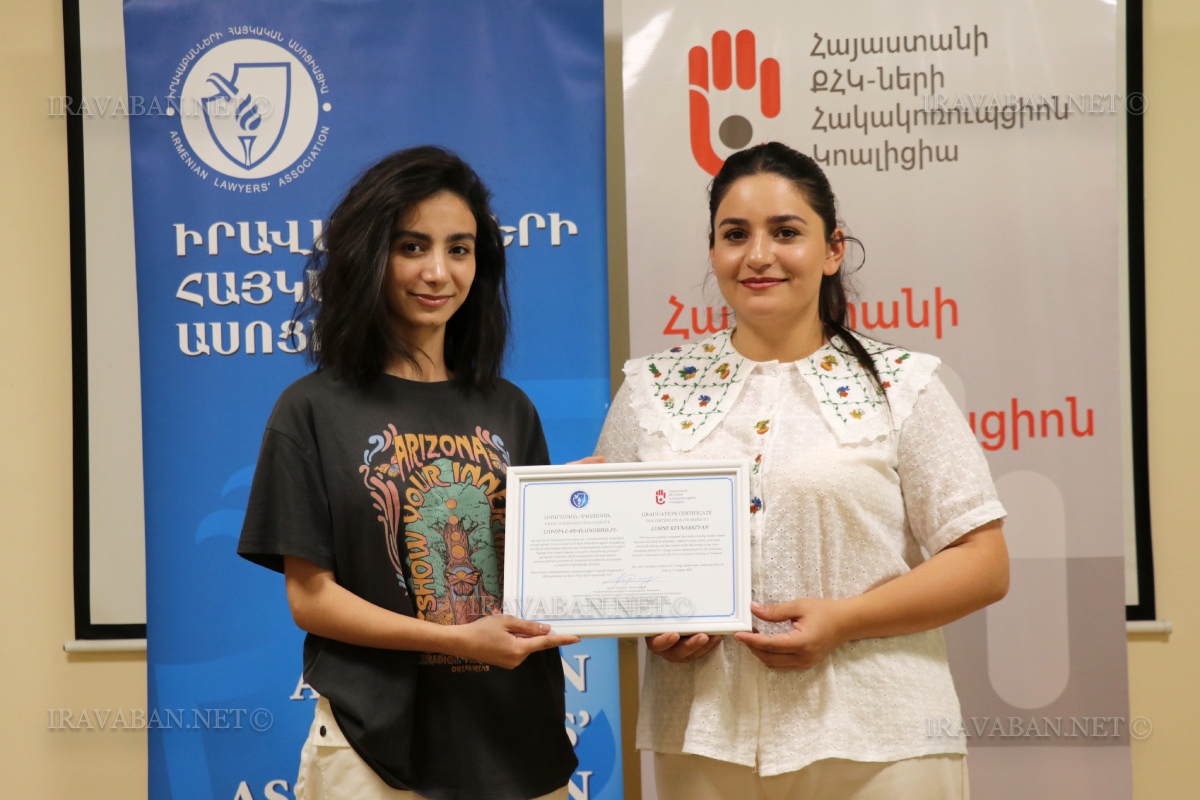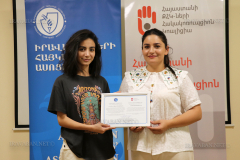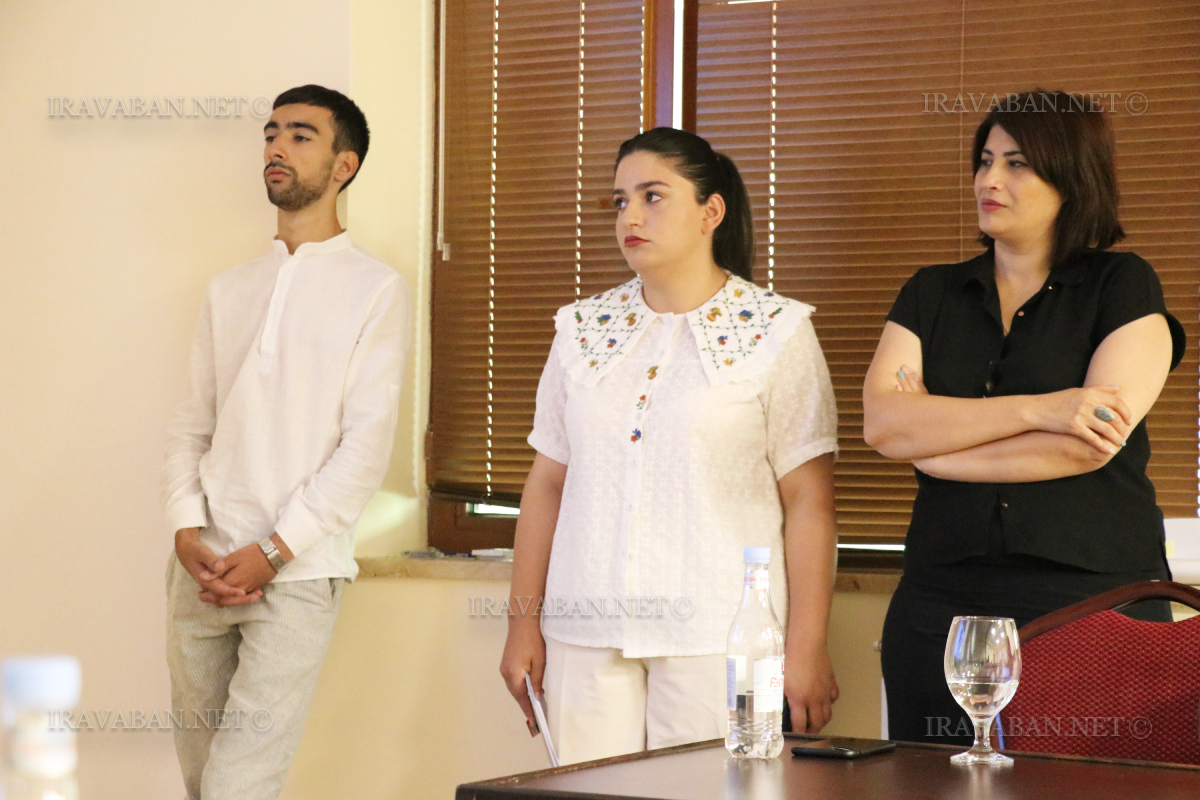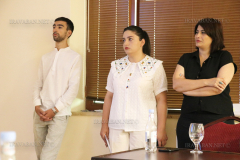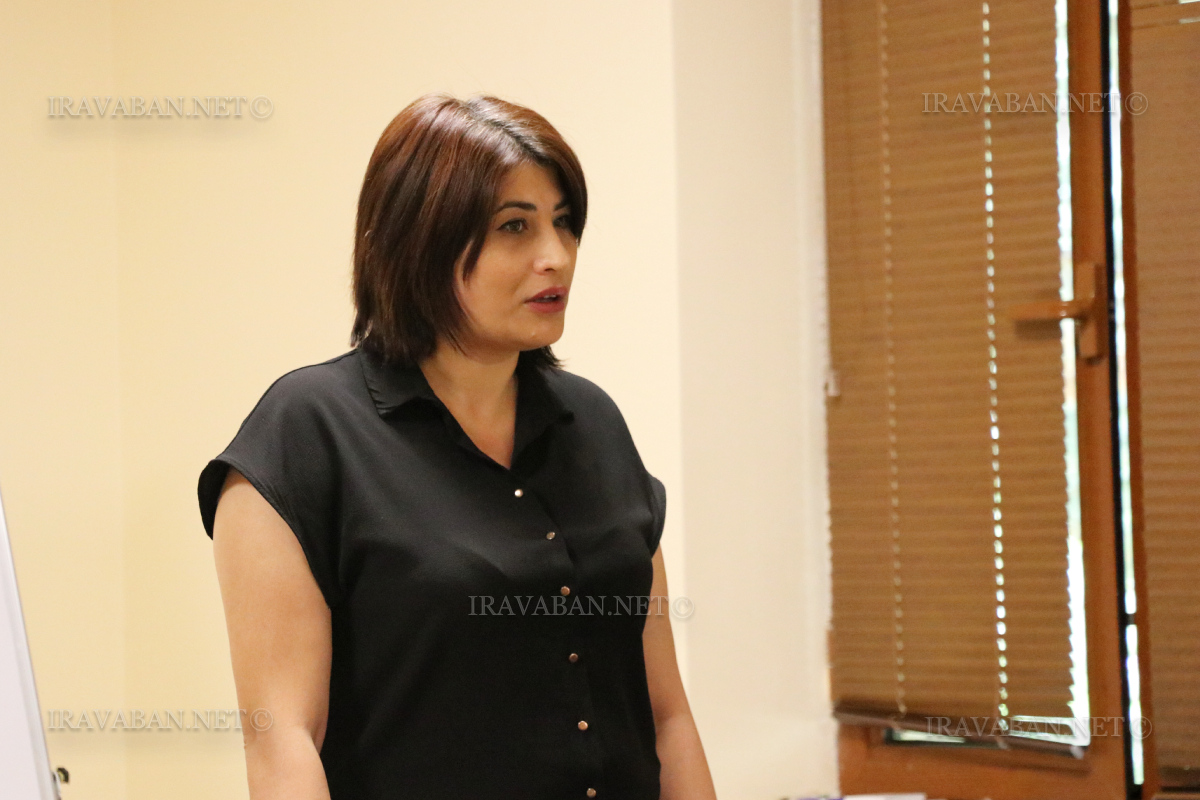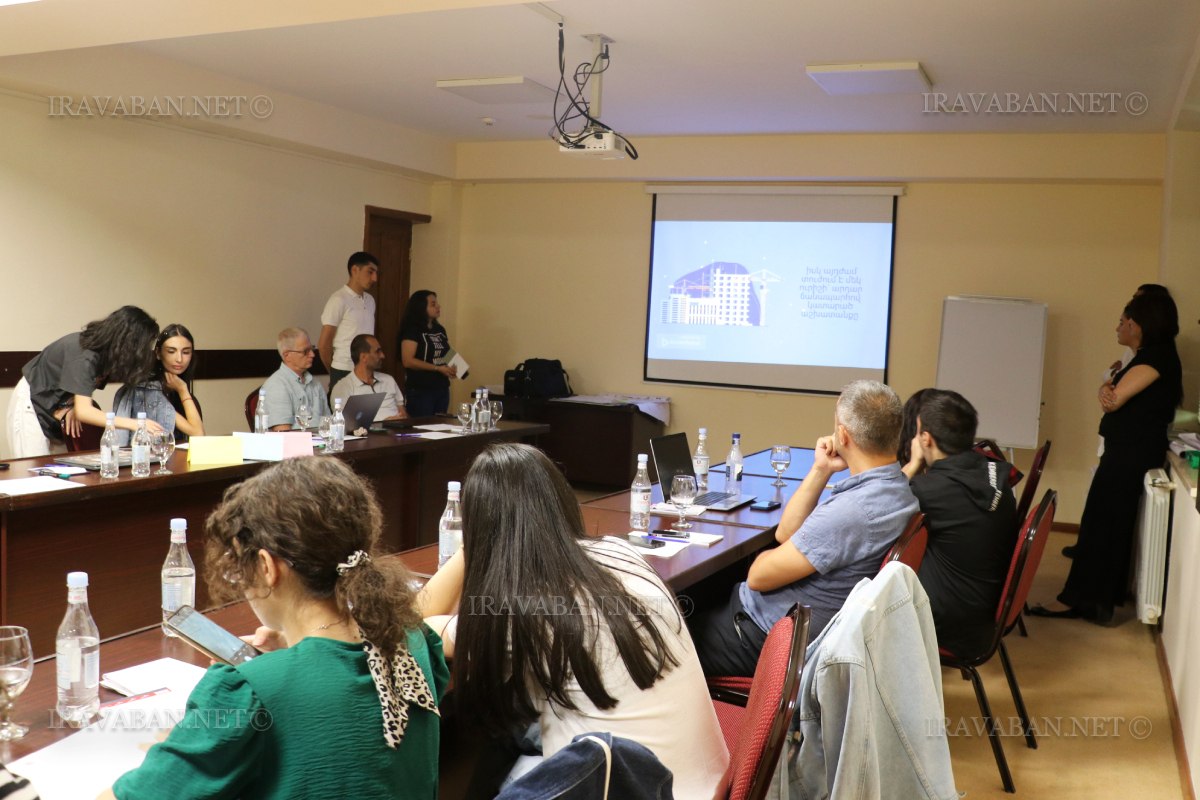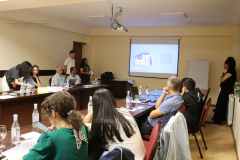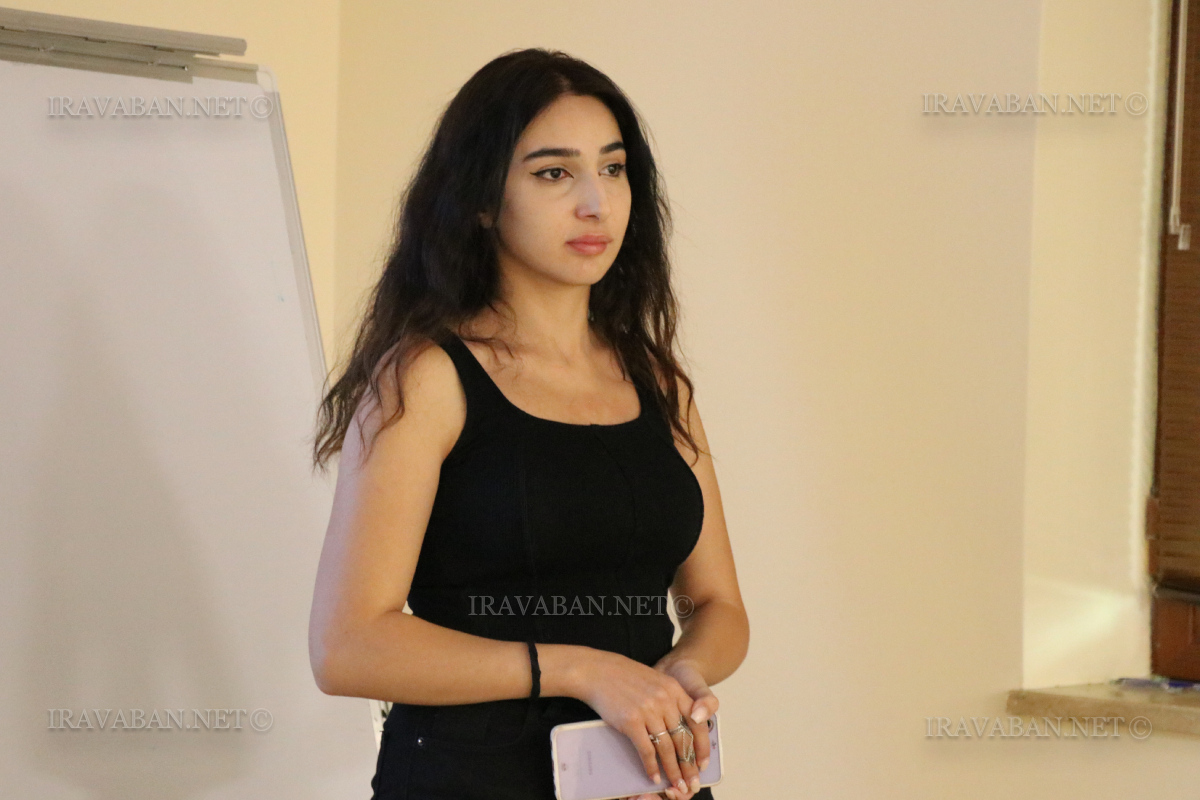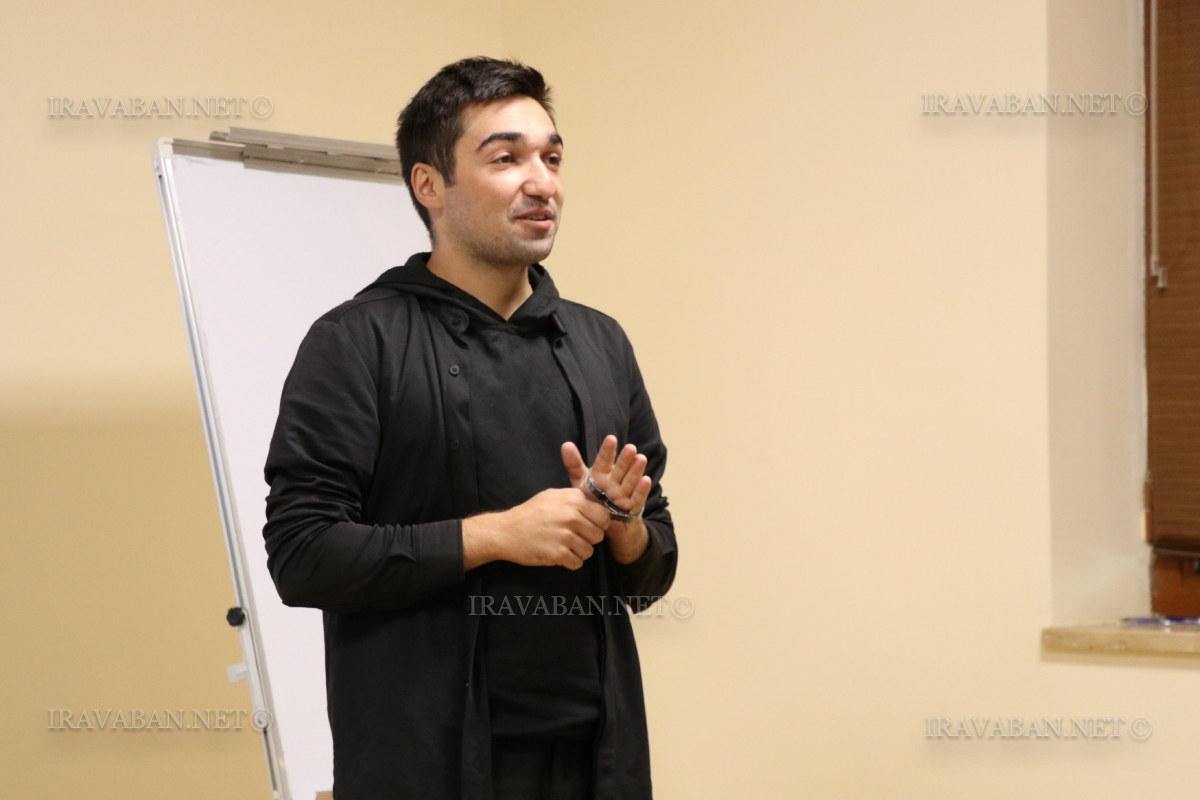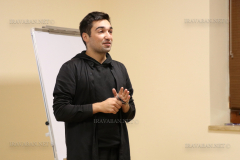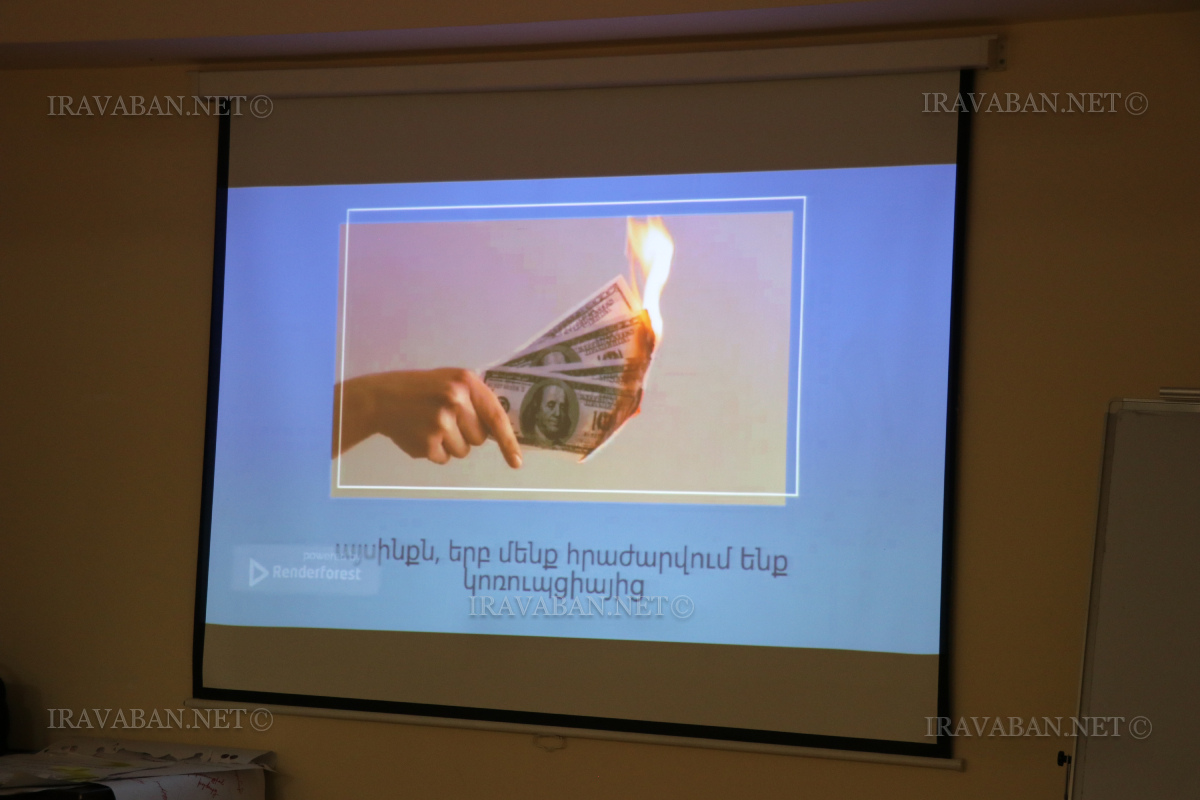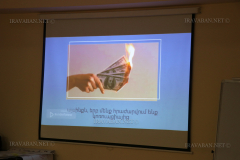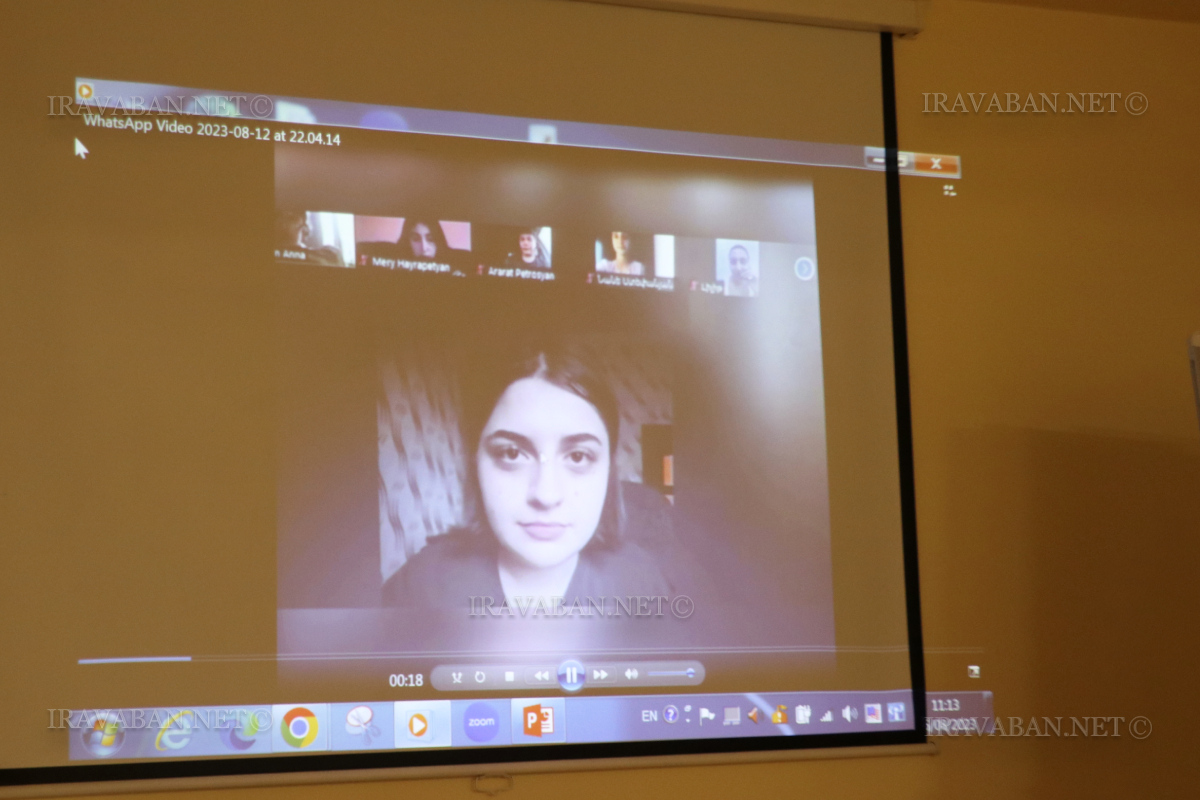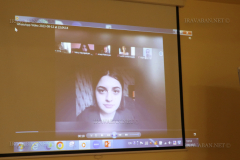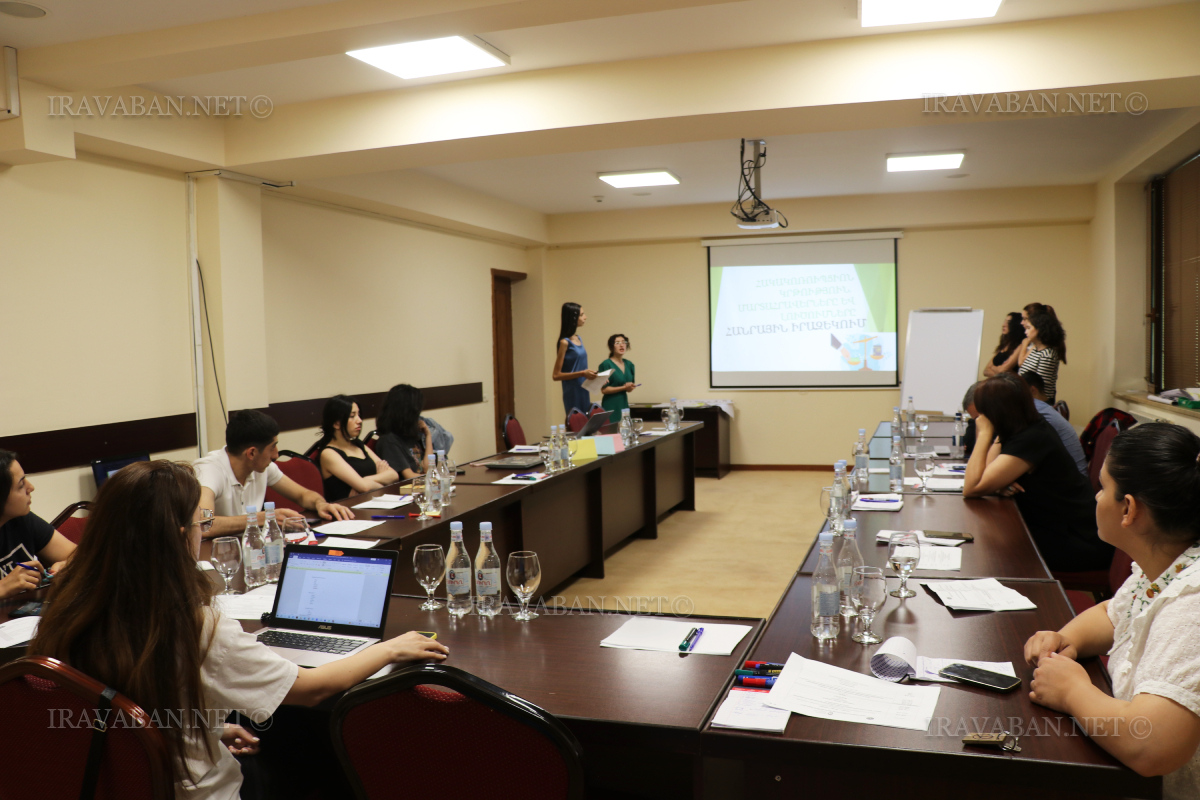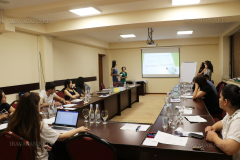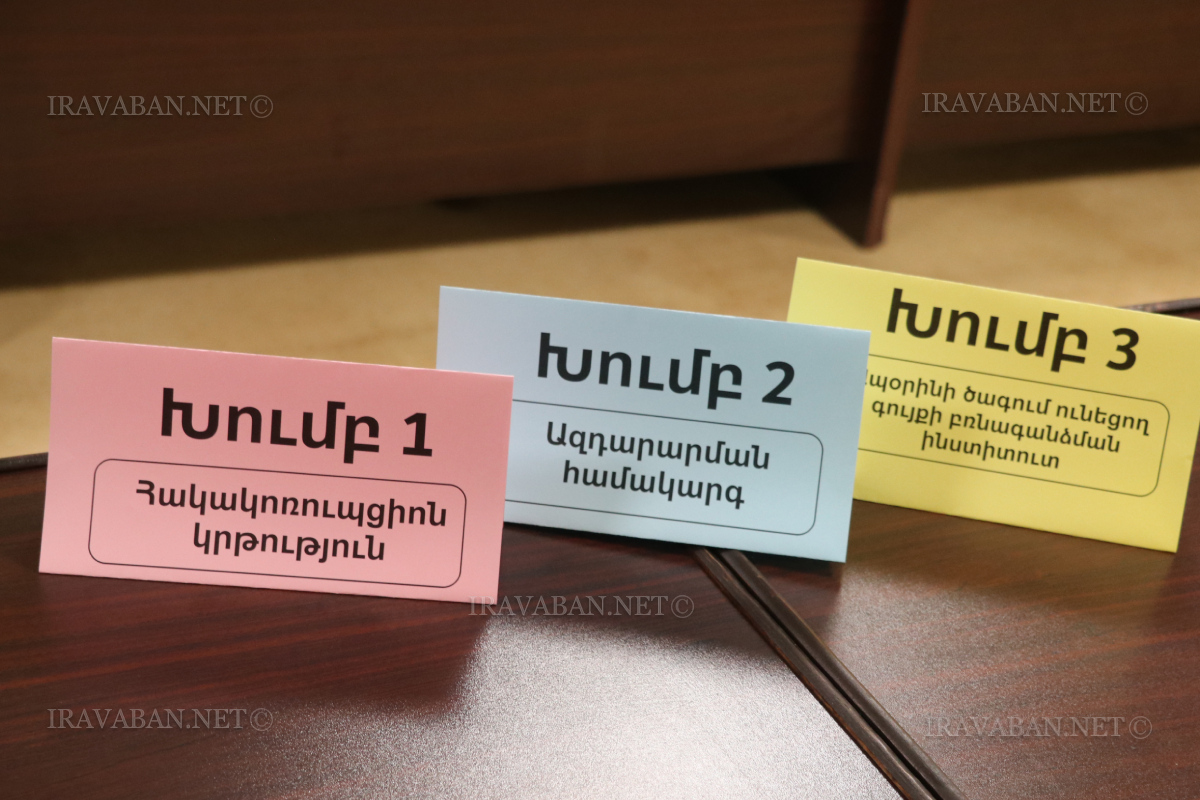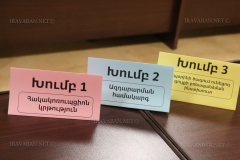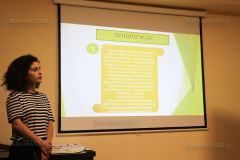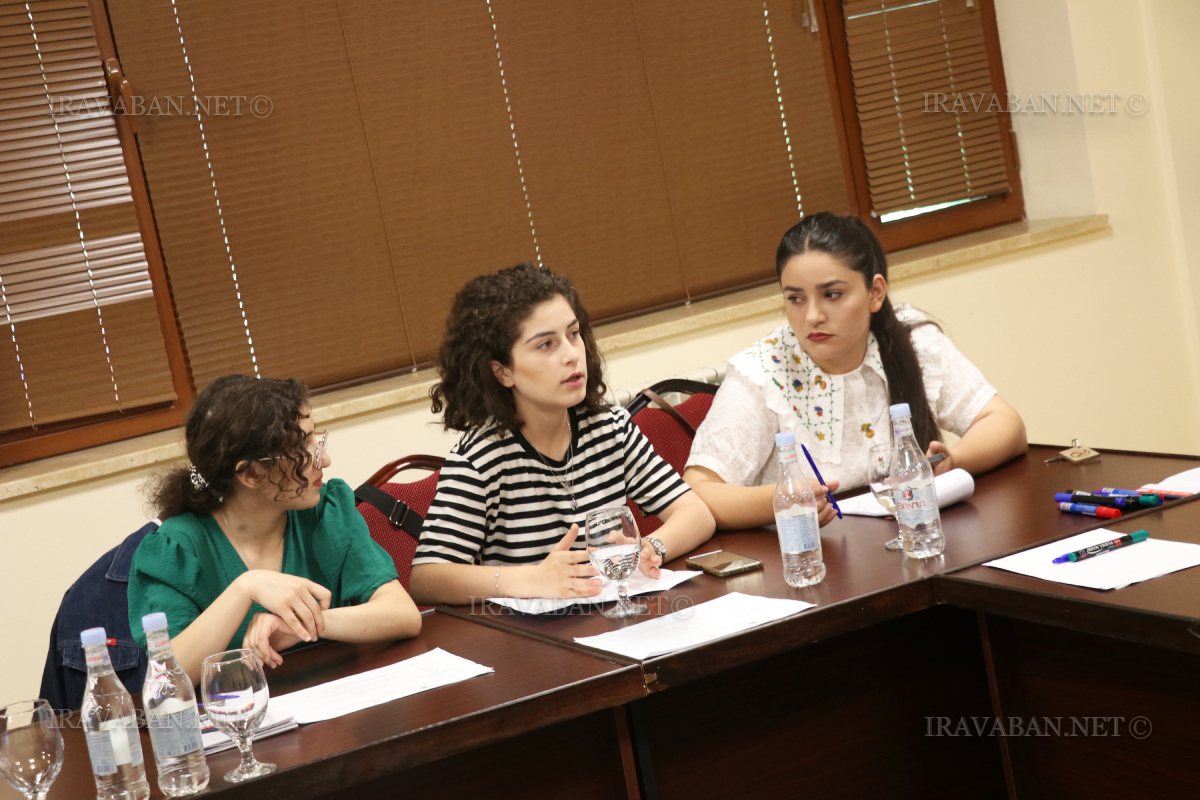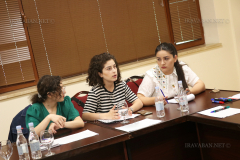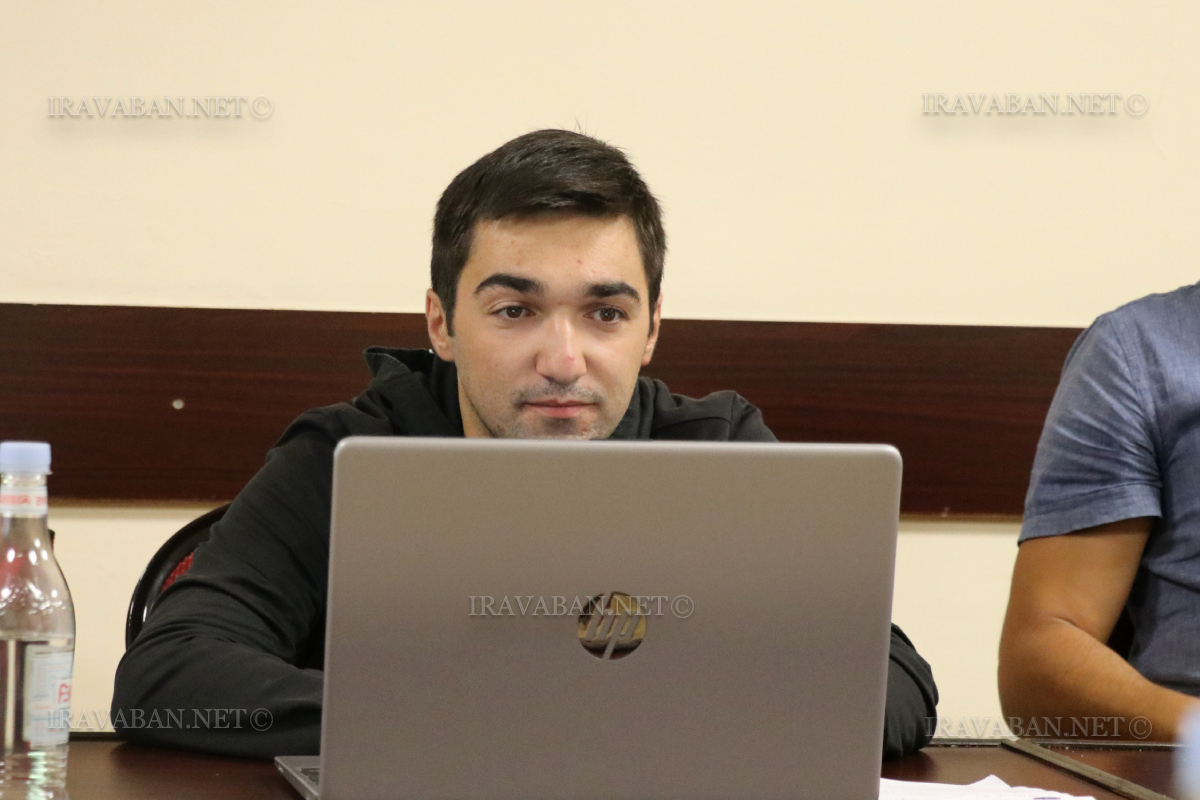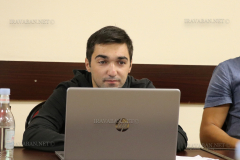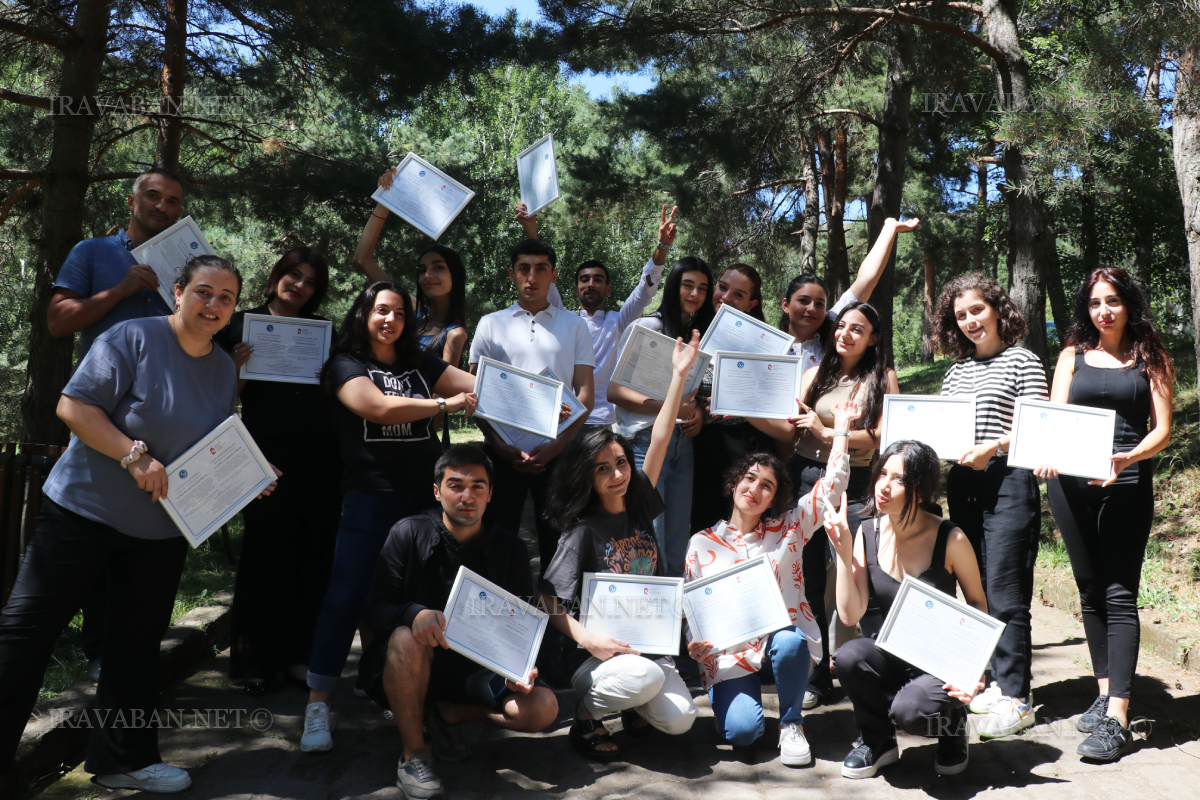
The training of the students of the 9th stream of the Anti-Corruption School for Young Leaders was completed with the final outreach training phase. After 2 months of getting in-depth knowledge about the field, visiting a number of state and non-commercial structures, they presented their individual research and group works in Aghveran.
About 20 students prepared individual works on the mentioned 3 topics, as well as held public awareness activities. The topics were:
- Anti-Corruption Education: Challenges and Solutions,
- Institute for Confiscation of Property of Illicit Origin: Challenges and Solutions,
- Whistle-Blowing System: Challenges and Solutions.
The students analyzed both international and national experience and came up with new recommendations for regulating the field.
The topic of the final thesis of the student of the Anti-Corruption School, teacher Tsovinar Sahakyan was the Whistle-Blowing System. She noted in her speech, that the officials are also “guilty” for the non-existence of the system. “It was even heard from the country’s high chair that the law is aimed at protecting the interests of “snitchers”.
Tsovinar Sahakyan conducted public awareness on this topic among her students. She notes that according to the results of her personal monitoring, the reason for not getting involved in the fight against corruption is indifference to the events taking place in the country. “The nail in the anti-corruption fight is education and demand towards the administration.”
The subject of Kima Davoyan’s graduation work, a 4th-year law student, was Institute for Confiscation of Property of Illicit Origin. She made a deep analysis of international experience.
“The examples of Switzerland and Egypt were especially interesting. By 2011, corruption was widespread in Egypt, which eventually led to a revolution. In 2011, a number of laws and legal acts were adopted, which refer to the fight against corruption. The Law on Confiscation of Property of Illicit Origin was among those legal acts as well,” she notes.
Anna Grigoryan’s graduation work on Anti-Corruption Education was distinguished by thoughtful, interesting recommendations for practical application. She was not familiar with the topic when he decided to enter the school, but in the process she decided to write her analysis on this topic. Although the topic was not in great demand, Anna had chosen this one from the very beginning.
“It seems to me that if I started writing about the other 2 topics, sooner or later I would touch on anti-corruption education.” I believe that in order to reform in any field, we must start with education,” she says.
After presenting the final works, Anahit Mardoyan, Coordinator of the Anti-Corruption School for Young Leaders, handed over the certificates to the students of the School.
The participants say that the Anti-Corruption School gave them a lot. Both in terms of knowledge, leadership, integrity, pillars of national identity and self-development. Lusine Kevnakszyan, one of the students, says that she appreciates the non-discriminatory approach towards the participants in the school the most.
Graduates of the 9th stream also shared their observations and vision regarding the preparation of the training plan for the future streams of the school.
The 2023 admission of the 10th stream of the Anti-Corruption School for Young Leaders will be announced soon.
The Anti-Corruption School for Young Leaders was founded by Karen Zadoyan, the President of the Armenian Lawyers’ Association, a member of the Anti-Corruption Policy Council. “The Armenian Lawyers’ Association” NGO is organizing the Anti-Corruption School for Young Leaders in cooperation with the CSO Anti-Corruption Coalition of Armenia.
The information partner of the Anti-Corruption School for Young Leaders is Iravaban.net, independent professional news website.

